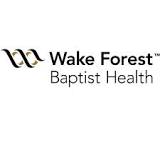The Teachable Moment: Screening and Brief Intervention for Admitted Trauma Patients
| Status: | Completed |
|---|---|
| Conditions: | Psychiatric |
| Therapuetic Areas: | Psychiatry / Psychology |
| Healthy: | No |
| Age Range: | 18 - Any |
| Updated: | 8/11/2018 |
| Start Date: | January 2009 |
| End Date: | December 2011 |
The American College of Surgeons now requires screening for alcohol use in trauma centers.
The purpose of this research study is to provide information about the best screening and
treatment methods. The investigators hope the findings will provide information that will
improve healthcare by reducing problems related to risky alcohol use. The trauma team is
conducting a comparison of two different ways of talking about alcohol use. Participants will
be randomized into one of the two study groups.
The purpose of this research study is to provide information about the best screening and
treatment methods. The investigators hope the findings will provide information that will
improve healthcare by reducing problems related to risky alcohol use. The trauma team is
conducting a comparison of two different ways of talking about alcohol use. Participants will
be randomized into one of the two study groups.
The goal of this study is to guide further policy development regarding effective alcohol
screening by: (a) comparing the effectiveness of two new, shorter screening tools for risky
drinking patterns with the longer screening tool in current use; (b) assessing the outcomes
of two different brief counseling interventions (BIs) with trauma patients screened to have
risky drinking behaviors; and (c) examining the impact of the implementation of this new
policy in a Level I Trauma Center.
The Specific Aims will be accomplished by:
1. Screening patients who are admitted to the Trauma Center, and conducting BIs for all who
screen positive;
2. Collecting formative qualitative data regarding participants' perceptions of benefits of
drunken states, their individual risks, and perceived healthier alternatives;
3. Collecting quantitative data (injury severity score and hospital length of stay) and
correlating these data with patient demographics and responses on the different
screening methods;
4. Collecting follow-up data by telephone on self-reported alcohol use and trauma
recidivism, using an interviewer-administered assessment;
5. Collecting data on trauma recidivism from ED data, publicly available records, and
patient self-report at 6-month telephone follow-up;
6. Surveying trauma staff and physicians at three intervals regarding the process of
implementing the new ACS policy, any perceived difficulties, and the perceived impact
screening by: (a) comparing the effectiveness of two new, shorter screening tools for risky
drinking patterns with the longer screening tool in current use; (b) assessing the outcomes
of two different brief counseling interventions (BIs) with trauma patients screened to have
risky drinking behaviors; and (c) examining the impact of the implementation of this new
policy in a Level I Trauma Center.
The Specific Aims will be accomplished by:
1. Screening patients who are admitted to the Trauma Center, and conducting BIs for all who
screen positive;
2. Collecting formative qualitative data regarding participants' perceptions of benefits of
drunken states, their individual risks, and perceived healthier alternatives;
3. Collecting quantitative data (injury severity score and hospital length of stay) and
correlating these data with patient demographics and responses on the different
screening methods;
4. Collecting follow-up data by telephone on self-reported alcohol use and trauma
recidivism, using an interviewer-administered assessment;
5. Collecting data on trauma recidivism from ED data, publicly available records, and
patient self-report at 6-month telephone follow-up;
6. Surveying trauma staff and physicians at three intervals regarding the process of
implementing the new ACS policy, any perceived difficulties, and the perceived impact
Inclusion Criteria:
- Inpatient on trauma service
- 18 years or older
- Speaks either English or Spanish
One or more of the following:
- Patient answered yes to either admission screening question
- Patient has a positive BAL of less than or equal to 79 and also has a positive Audit
score (men greater than or equal to 8; women greater than or equal to 4)
- Patient has a BAL of 80 or higher
- patient has no record of a BAL on file and they have a positive Audit score
Exclusion Criteria:
- Patient unable or unwilling to provide informed consent
- Patient refusal contact at six months
- Patient has a positive BAL of less than or equal to 79 and negative AUDIT score
- Patient deemed unable to complete a BI
We found this trial at
1
site
1 Medical Center Blvd
Winston-Salem, North Carolina 27103
Winston-Salem, North Carolina 27103
(336) 716-2011

Wake Forest University Baptist Medical Center Welcome to Wake Forest Baptist Medical Center, a fully...
Click here to add this to my saved trials